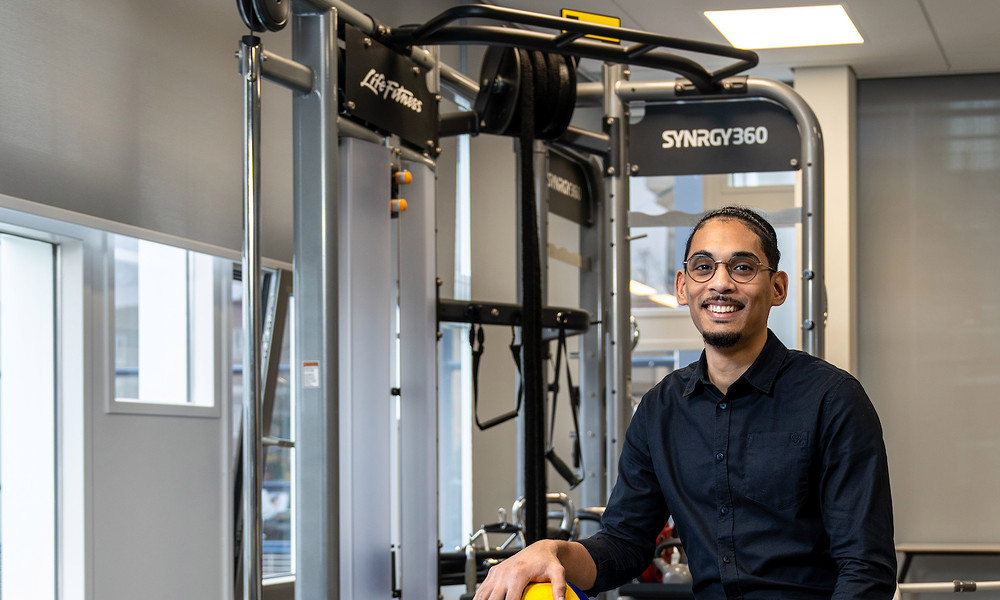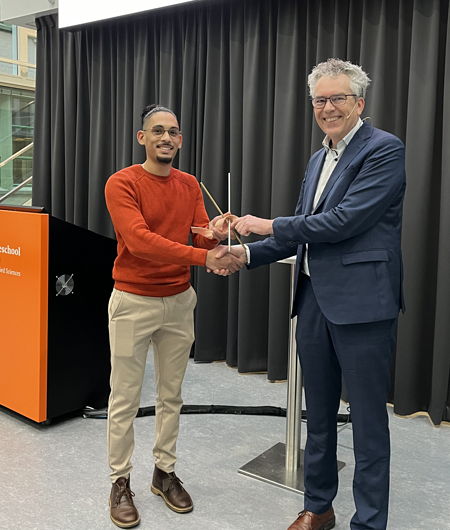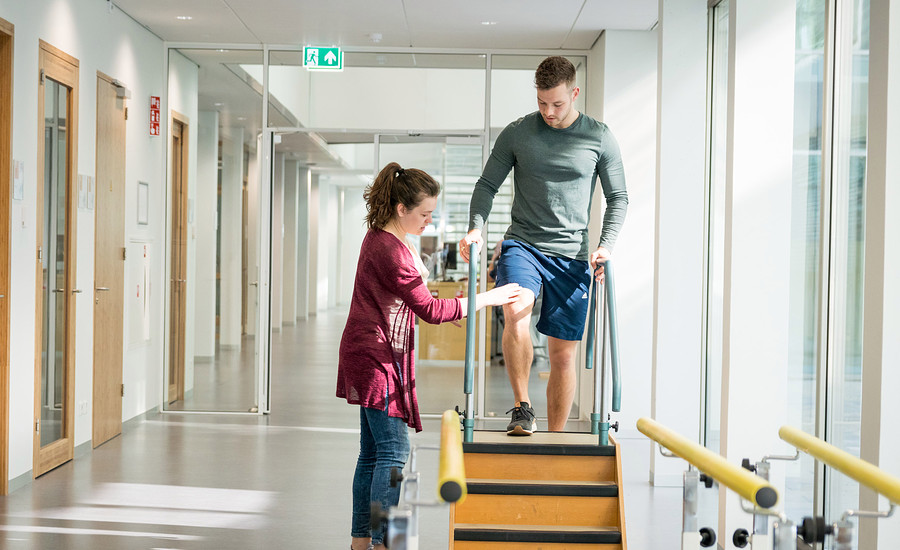Lecturer Chris Attai contender for Teacher of the Year election
- News


Chris Attai, lecturer of the International Physiotherapy Programme (IPP), is one of the four finalists for the Teacher of the Year election. The winner will be presented with the award by the outgoing Minister of Education, Culture and Science, Robbert Dijkgraaf on 25 March.
Source portrait photo: Pepijn van den Broeke
The Teacher of the Year election is organised by the Dutch National Student Association (ISO). The election aims to pay tribute to inspirational and excellent teaching in higher education. Chris Attai was nominated as Teacher of the Year on behalf of Hanze University of Applied Sciences, Groningen because of his strong commitment and unique approach to teaching which has a positive impact on the well-being and intrinsic motivation of students. In January, he received a Hanze Award from the Dean of the School of Health Care Studies, Dominicus Kamsma (see photo).
Students have indicated that his commitment often goes beyond what is required and he is able to explain complex theories in an understandable manner. As one student put it, Chris is “ … highly engaged and explains theory very well. He is taking a lot of responsibility and has a wide background of knowledge. I learnt a lot from him. He takes his job very seriously and puts an enormous amount of effort into his teaching. He is always prepared, even at short notice.”
What makes Chris stand out as a teacher is his commitment, passion and strong contributions to education. He is admired for his dedication to his field, his personal approach to education and his skill in preparing students for both the theoretical and practical aspects of physiotherapy, whilst paying special attention to the psychological aspect, or as another one of his student comments: “He's able to read the room and convey knowledge in an appropriate manner, preparing students in the psychological realm which, especially in these times, is of great importance in the healthcare sector.”
Chris started at Hanze University of Applied Sciences as a non-EU student at the International Physiotherapy Programme, but his academic journey began in Trinidad and Tobago where he studied psychology. After graduation, Chris was invaluable in supporting international students during the pandemic. As a former international student himself, he understood better than anyone what challenges students from other parts of the globe faced during that period. No doubt his background in psychology came in handy too.
When asked why he chose to become a lecturer in physiotherapy rather than work in the field of psychology, Chris replied: “I knew right away that I wanted to be a therapist.” Initially he wanted to work with children who had experienced violence, but his tutors told him this was a tough field to work in long term and advised him to look elsewhere. Becoming a physiotherapist has allowed him to bring both of his interests together. Even more so now that he is a lecturer, so it seems.
Chris believes that “Each individual is unique and has a different learning style. Optimising lessons can be achieved by taking into account the diverse learning styles within a group. A personalised approach is crucial in this regard. Often, lessons are predetermined with the idea of "this is how it is going to be," but this way, not all students are effectively reached. I think it’s important that every student in my class walks away with learning something.”
He feels it is important to create a safe environment where there is mutual respect and students dare to ask questions. “I involve my students in my teaching methods. I ask them how they would like to learn. This builds their autonomy. Each group is therefore different. Some groups prefer a collaborative approach, some groups prefer a more individual approach. ”As an advocate of a more collaborative approach of education, he would like a system in which more attention is being paid to individual learning styles. This requires a more flexible system that focuses on wat students need instead of what is offered to them.

How satisfied are you with the information on this page?